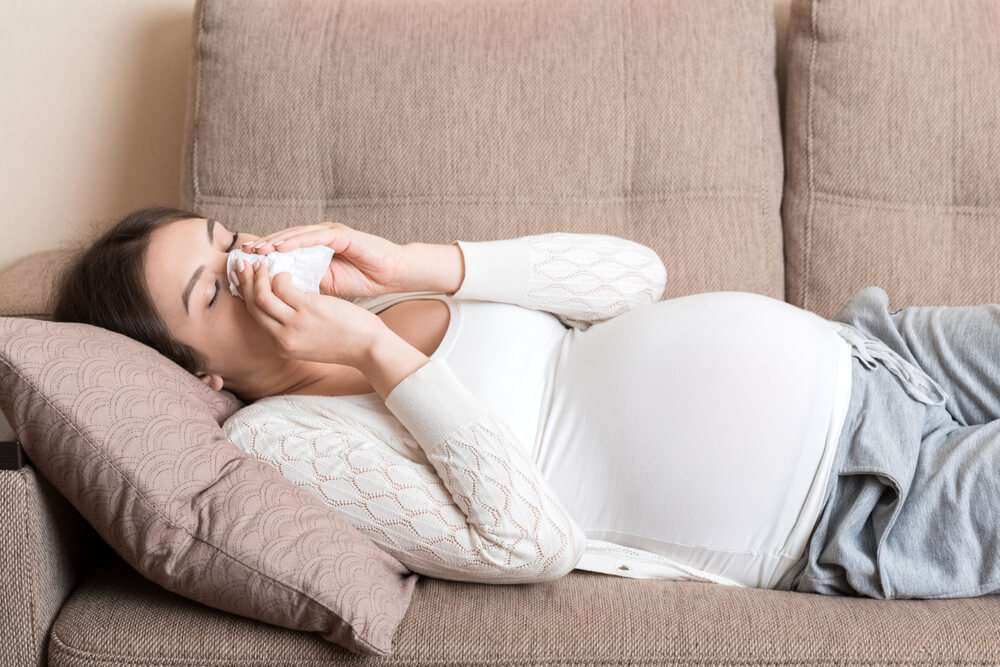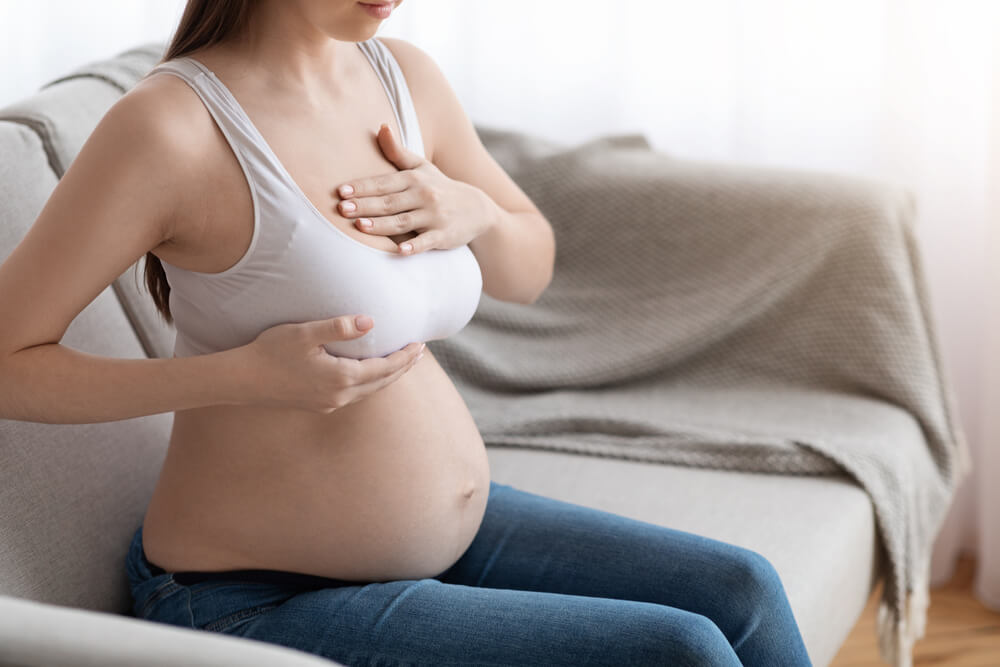Pregnancy is a beautiful and transformative journey that brings joy and anticipation. However, it also comes with its fair share of physical discomforts and concerns. One such circumstance is experiencing chest pain during pregnancy. While chest pain can be alarming, it is important to understand that it can have various causes, ranging from minor issues to more severe conditions.
In this article, we will explore the common causes of chest pains during pregnancy, symptoms to look out for, home treatments, and when to seek medical attention. That said, it’s always better to be safe than sorry, so don’t hesitate to look for expert obstetrics in Jacksonville, Florida, during this crucial period of your life.
Minor Causes of Chest Pain While Pregnant
Let’s start by addressing some minor causes of chest pain during pregnancy. As the body goes through significant changes to accommodate the growing baby, it is not uncommon to experience discomfort in the chest area. Here are a few minor causes that can lead to chest pain:
- Heartburn and acid reflux: Hormonal changes during pregnancy can make the lower esophageal sphincter more relaxed, allowing stomach acid to go back to the esophagus. This can cause a burning sensation in the chest, commonly known as heartburn. Elevating the head while sleeping, avoiding spicy and fatty foods, and eating smaller meals throughout the day can help alleviate symptoms.
- Muscle strain: As the uterus expands, it pressures the surrounding muscles and ligaments. This can lead to muscle strain in the chest area, causing pain. Practicing good posture, avoiding heavy lifting, and incorporating gentle stretching exercises can provide relief.
- Costochondritis: Costochondritis is the inflammation of the cartilage that connects the ribs to the breastbone. It can cause chest pain that worsens with movement or deep breaths. Applying a warm compress, practicing gentle stretches, and taking over-the-counter pain relievers (after consulting with your healthcare provider) can help manage the discomfort.

More Serious Causes of Chest Pain While Pregnant
While most chest pains during pregnancy are benign, it is essential to be aware of more serious causes that require medical attention. These conditions are relatively rare but should not be ignored. Some serious female chest pain causes include:
- Pulmonary embolism: This occurs when a blood clot forms in one of the blood vessels in the lungs. It can cause chest pain, shortness of breath, and a rapid heartbeat. If you experience these symptoms, it is crucial to seek immediate medical attention.
- Preeclampsia: Preeclampsia is a serious condition characterized by high blood pressure during pregnancy. Chest pain can be a symptom of preeclampsia, along with other signs such as swelling, severe headaches, and vision changes. If you suspect preeclampsia, contact your healthcare provider right away, as it’s crucial to learn how to prevent high blood pressure during pregnancy and manage the condition.
- Gallbladder issues: Gallstones or inflammation of the gallbladder can cause chest pain, typically on the right side. It may be accompanied by other symptoms such as nausea, vomiting, and pain in the upper abdomen. Consult your doctor if you experience these symptoms.
Chest Pains in Early and Late Pregnancy
Chest pains during pregnancy can occur at any stage, but there are some differences between early and late pregnancy. In the early stages, hormonal changes and an expanding uterus can contribute to chest discomfort. As the pregnancy progresses, the growing baby can exert pressure on the diaphragm, leading to chest pain. It is essential to differentiate between normal pregnancy-related chest pain and potentially concerning symptoms. If you have any doubts, consult your healthcare provider for guidance and peace of mind.
Symptoms That Might Accompany Chest Pain in Pregnancy
When it comes to pregnancy and chest pains, it is essential to be mindful of accompanying symptoms that might indicate a more serious issue. Some symptoms to watch out for include:
- Shortness of breath: If you are having difficulty breathing, feeling breathless even at rest, or experiencing rapid breathing, it could indicate a need for immediate medical attention.
- Severe or persistent pain: If the chest pain is severe, radiates to other parts of the body (such as the arm or jaw), or does not subside with rest, it is crucial to seek medical evaluation promptly.
- Dizziness or fainting: Feeling lightheaded, dizzy, or actually fainting, along with chest pain, can be a sign of a more severe condition that requires urgent medical attention.
Home Treatments for Common Causes of Chest Pain in Pregnancy
For minor causes of chest pain during pregnancy, some home treatments can help alleviate discomfort. Here are a few remedies you can try:
- Adjust your posture: Maintaining good posture can reduce strain on the chest muscles and alleviate pain. Practice sitting and standing straight, and consider using supportive pillows while sleeping.
- Eat smaller, frequent meals: Opting for smaller, more frequent meals instead of large ones can help prevent heartburn and acid reflux. Focus on consuming nutritious foods that are easy to digest.
- Apply a warm compress: If you suspect muscle strain or costochondritis, applying a warm compress to the affected area can help relax the muscles and reduce inflammation.
When to See a Doctor in Regards to Pregnancy and Chest Pains
While most chest pain during pregnancy is harmless, certain situations warrant medical attention. It is advisable to consult your healthcare provider if you experience any of the following:
- Severe or persistent chest pain
- Difficulty breathing or shortness of breath
- Chest pain accompanied by dizziness, fainting, or palpitations
- Fever, cough, or other respiratory symptoms
- Pain or discomfort that worsens over time

Medical Treatment for Chest Pain During Pregnancy
Depending on the underlying cause of the chest pain, your healthcare provider may recommend specific medical treatments. For more serious conditions, such as pulmonary embolism or preeclampsia, prompt medical intervention is necessary to ensure the well-being of both the mother and the baby. Always follow your doctor’s advice and attend regular prenatal check-ups to monitor your health throughout pregnancy.
To Conclude
Experiencing chest pain during pregnancy can be concerning, but it is essential to differentiate between minor female chest pain causes and more serious conditions. By understanding the common causes, symptoms, and appropriate actions to take, pregnant women can navigate chest pain with confidence. Remember to consult your healthcare provider if you have any doubts or if your symptoms worsen. Stay proactive in your self-care and enjoy this transformative journey toward motherhood.
Keep in mind that the information provided in this article is for educational purposes only and should not replace professional medical advice. Always consult with your healthcare provider for personalized guidance and recommendations. You can always schedule an appointment at Trogolo Obstetrics and Gynecology in Jacksonville through our website or call (904) 647-6946.


